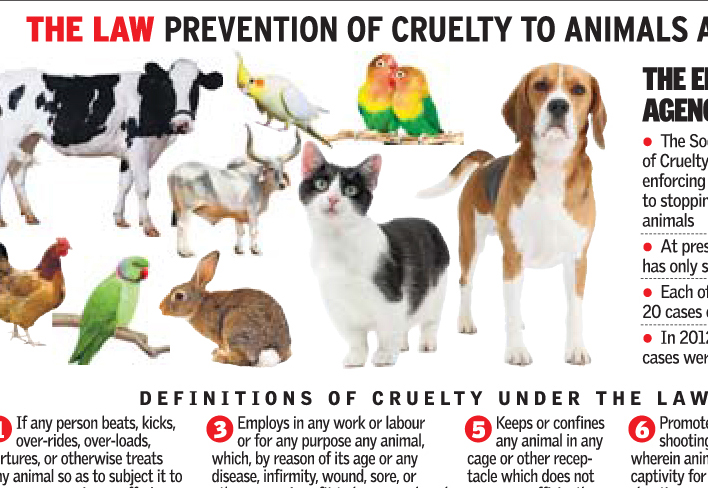Animal cruelty is a grave moral issue that evokes a visceral reaction in many individuals. However, the question of whether animal cruelty should be classified as a crime is complicated. Despite the emotional weight of the subject, the legal framework surrounding animal welfare has not kept pace with societal values. Legal systems around the world often treat animal cruelty as a minor infraction rather than a serious crime, highlighting a significant disconnect between public sentiment and legislative action.
One of the primary justifications for treating animal cruelty as a criminal offense lies in the principle of sentience. Animals, much like humans, are capable of experiencing pain and suffering. The recognition of this sentience has burgeoned in recent years, prompting calls for legal systems to reflect a deeper understanding of animal welfare. The ability of animals to experience distress means that acts of cruelty can have far-reaching effects, not only on the animals themselves but also on the broader communities that witness such actions.
Current laws addressing animal cruelty vary dramatically depending on jurisdiction. In some states or countries, legislation exists that categorizes animal cruelty as a felony, affording stronger protections for animals. Conversely, in others, offenses may be regarded as petty misdemeanors, resulting in minimal penalties. This inconsistency raises the question of why laws do not universally protect animals more robustly. The lack of uniformity in legal standards could be attributed to cultural attitudes, economic considerations, or an overarching emphasis on human-centric legal priorities.
As societal awareness of animal rights evolves, so too does the need for comprehensive legislation. Various forms of animal cruelty, from neglect and abandonment to outright abuse, necessitate distinct legal responses. For instance, neglect often stems from misinformation or lack of resources, while intentional harm usually signals a deeper societal pathology. Addressing these varying motivations with the appropriate legal framework can lead to more effective interventions.
One aspect of animal cruelty that often escapes public scrutiny is the role of agricultural practices. Industrial farming, often referred to as factory farming, subjects billions of animals to horrific conditions that would be deemed illegal if inflicted on pets. The legal protections for farm animals are astonishingly insufficient; many nations allow practices such as confinement in cages, questionable slaughter methods, and the use of growth hormones without stringent oversight. The resulting incongruity between the treatment of companion animals and those used for food poses an ethical dilemma that lawmakers frequently ignore.
Cultural and economic factors play a pivotal role in shaping attitudes toward animal cruelty. In societies where animals are primarily viewed as commodities, the push for stricter laws may meet resistance from industries that prioritize profit over welfare. Lobbying efforts from agricultural giants often impede legislative progress, illustrating an unsettling alignment between economic interests and the perpetuation of cruelty. Reforming these systems requires a multifaceted approach that considers educational initiatives alongside regulatory enforcement.
Public awareness campaigns have proven effective in addressing animal cruelty and can effectively galvanize support for legislative reform. Documentaries, articles, and social media movements serve to illuminate the stark realities of animal suffering, encouraging citizens to advocate for change actively. As more individuals become attuned to the intricacies of animal exploitation, the demand for stronger anti-cruelty laws will inevitably intensify.
Legislators must also grapple with the psychological underpinnings of cruelty when forming laws. Research indicates a concerning correlation between animal cruelty and violent behaviors towards humans. Those who commit acts of cruelty often display a lack of empathy and disregard for life, behaviors that can manifest in various destructive ways. The necessity for stricter laws not only serves to protect animals but also aids in fostering a more empathetic society.
Implementing stricter legal definitions and penalties for animal cruelty can yield numerous benefits. Stronger laws serve a dual purpose: they deter potential offenders and provide resources for education and rehabilitation. Ensuring that perpetrators of cruelty understand the consequences of their actions is crucial for societal progress. Additionally, law enforcement must be adequately trained to handle cases of animal cruelty, which necessitates investment in both time and resources.
Moreover, collaboration among various stakeholders—including animal welfare organizations, law enforcement, and legislators—is essential for effective policy change. Programs that emphasize community engagement and awareness can significantly influence legislative priorities. For example, adopting restorative justice frameworks allows offenders to engage with communities affected by their actions, fostering a sense of responsibility and empathy.
Ultimately, the journey toward classifying animal cruelty as a more serious crime is fraught with challenges but is equally vital for the moral advancement of society. As public awareness heightens and advocacy efforts intensify, the legal framework surrounding animal cruelty must evolve. Coworkers of all kinds—activists, citizens, and decision-makers—must unite in a concerted effort to eliminate cruel practices and promote a more humane existence for all creatures. Only through collective action can we hope to construct a legal system that recognizes and protects the intrinsic value of every living being.








